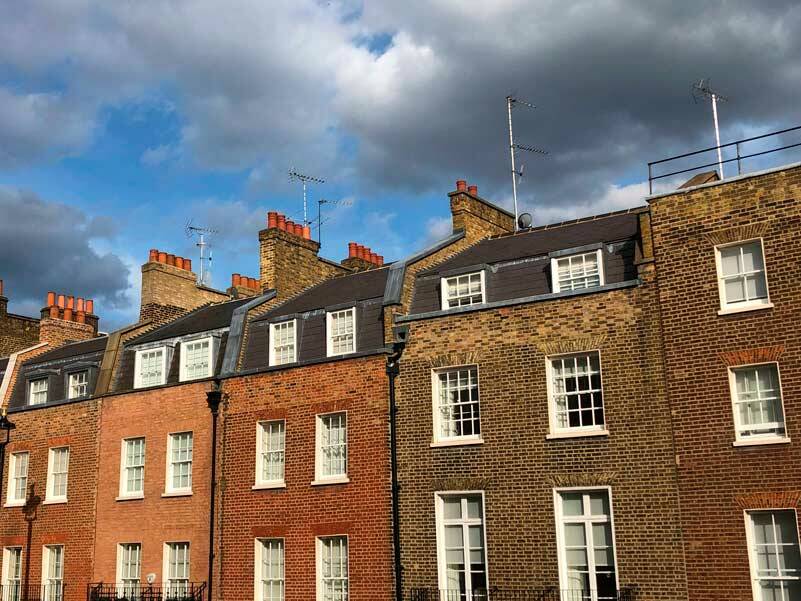By Morf Morford, Tacoma Daily Index
I have often called attention to the fact that walking through the streets in the Middle Ages was a different experience from nowadays. Right and left, there were house facades that were built out of what the soul felt and thought. Every key, every lock, carried the imprint of the person who had made it. – Rudolf Steiner
When I was teaching college-level writing courses, one of my writing prompts was, “How does where you live influence who you are?”
Most of my students would stare at me in total befuddlement. Many would deny that where they lived had anything to do with who they were.
I live in a 1920s era single-family home, in a neighborhood that is lush and green, year-round. Compared to most houses, ours is one of the many classic, vintage houses that Tacoma was once famous for – and, to restate the obvious, are not being built any more.
To put it mildly, not everyone has such a home. As I travel, even just a few miles from home, I’m struck by how dry, even bedraggled, much of the area seems.
You are what you eat. Are you where you live?
Every choice we make – and those made for us, such as by our parents, impact us in ways we can barely understand – even years later.
We make all kinds of assumptions about people – even ourselves – based on what we eat or wear. Or listen to. Or where we live. Or whether we own or rent.
As I was writing this, news segments on the funeral procession of Queen Elizabeth II came into view.
I remembered something that struck me as my wife and I travelled throughout the UK a couple years ago; almost every home in England is made of brick or stucco – or a combination.
Further north, in Scotland in particular, most older homes and public buildings are made of stone.
In both cases, the buildings last for centuries, in contrast to the 40-50 year life cycle of most homes and buildings – even schools – across the USA.
I can’t put it into words, but there is something qualitatively different about living in a home that is nearly a thousand years old, with the history of generations of occupants – sometimes from a single family – versus living in a home that, even by its builders, is considered semi-disposable.
I can’t help being convinced that I would have a completely different sense of self if I had lived in a centuries-old home versus a twenty-year old, but already-falling-apart house or apartment.
Identity
I’ve often thought it would fun to go somewhere where I don’t know anyone, maybe another city for a conference, and go to a thrift store and buy a bunch of clothes that are completely not my style and make up a whole new backstory about who I am and where I’ve been.
We might not think about it, but being born and raised in a different town or even one only twenty miles away could, in most cases, make a world of difference in how we perceive and present ourselves.
I was born in Tacoma, but raised in Parkland.
If I had been born in Seattle, or a hundred or so miles north, in Canada, my identity and sense of destiny would be completely different.
I identify and care about where I live – for no other reason than that I was born and raised here.
You could call it a local expression of patriotism.
I care for this area because it’s mine.
For better or worse, it reflects me.
And I reflect it.
Parsing out how or to what effect is more than a bit complicated. But I see it when I travel. Or at least I experience it. But I still can’t explain it.
Several years ago I attended a conference in Bismarck, North Dakota.
It was late March, with daily temperatures back home in Pierce County about 60 degrees (F).
In Bismarck, the daily high temperature hovered around 25 degrees (F). In my several days there, I don’t think it ever got above freezing.
The streets were clotted with compressed and dirty compacted ice and snow. It was obvious that it had been there for months.
One afternoon I walked to a nearby mall.
There were several small, one-unit boutique shops, most of them with no one in them. The proprietor had gone for a break and the neighboring shop keepers kept an eye on the shop for them. To put it mildly, this is not how we do things in Tacoma.
My mother had been born and raised not far from Bismarck, and there were probably even a few of my distant cousins in the town. Everyone looked vaguely familiar – like my childhood aunts and uncles.
But I didn’t look familiar to them.
It was obvious from how I dressed and spoke and carried myself, that I was an outsider – maybe even a threat. No matter what I said or did, I was an alien – I clearly and obviously did not belong.
That’s also how I usually feel in Seattle – like someone who visibly does not fit in.
The truest sign of belonging is to care – for a person, a pet, a vehicle or a place.
And, for better or worse, we have become forever associated with where we came from.
Whether we care for it is up to us.
*****
If you live in, or care about Pierce County, check out just a few volunteer opportunities here: https://www.piercecd.org/497/Volunteer-Opportunities?
Who knows? You just might meet some interesting people and discover some new favorite places.
*****
This article appeared in our 9-19-22 print edition.





